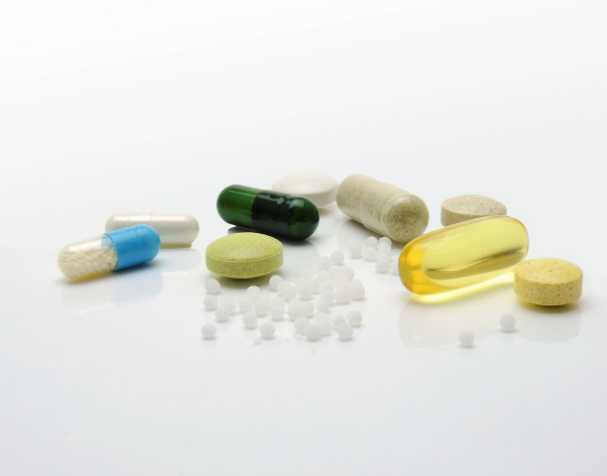How does glutathione fight inflammation and protect health?
by: GSHWORLD
time: 2025-01-09
classify: Product News
Recently, influenza A (H1N1) has entered its peak period. In the face of the aggressive influenza A, in addition to daily protection and vaccination, scientific and reasonable auxiliary prevention measures are also particularly important. Glutathione, as a substance with a strong anti-inflammatory effect, may become our "guardian" to protect health during the peak period of influenza A.

Glutathione's anti-inflammatory mechanism
Glutathione is a tripeptide composed of glutamic acid, cysteine and glycine, which has multiple physiological functions, the most prominent of which are its antioxidant and anti-inflammatory effects. Its anti-inflammatory mechanism is mainly reflected in the following aspects:
1. Removal of reactive oxygen species (ROS)
Reactive oxygen species are a type of highly reactive oxygen free radicals produced during cell metabolism, such as superoxide anions and hydrogen peroxide. During influenza A infection, the activation of inflammatory cells and the replication of the virus will lead to the generation of a large amount of reactive oxygen species. Reactive oxygen species can damage biological macromolecules such as cell membranes, proteins and DNA, trigger cellular oxidative stress reactions, and further aggravate inflammatory reactions. As a highly efficient antioxidant, glutathione can react with reactive oxygen species and convert them into harmless substances, thereby reducing the damage of reactive oxygen species to cells and reducing the degree of inflammatory reactions.
2. Regulating inflammatory cytokines
Inflammatory cytokines play a key regulatory role in inflammatory reactions. Glutathione can regulate the expression and release of inflammatory cytokines through multiple pathways. On the one hand, glutathione can inhibit the activation of nuclear factor-κB (NF-κB). NF-κB is an important transcription factor that can regulate the expression of multiple inflammatory cytokine genes. Glutathione inhibits the transcription and translation of inflammatory cytokines by binding to NF-κB and preventing it from entering the cell nucleus. On the other hand, glutathione can also promote the release of anti-inflammatory cytokines, such as interleukin-10 (IL-10), to further balance the inflammatory response.
3. Protect cell structure and function
Inflammatory response can cause damage to the cell membrane and disorder of the intracellular environment, affecting the normal function of the cell. Glutathione can react with unsaturated fatty acids on the cell membrane to form stable thiol esters, thereby protecting the integrity of the cell membrane. At the same time, glutathione can also maintain the balance of the intracellular glutathione redox system, promote the normal folding and function of intracellular proteins, maintain the normal metabolism and physiological function of cells, and reduce the damage of inflammation to cells.

Potential applications of glutathione
1. Relieve inflammatory symptoms
Glutathione has a strong anti-inflammatory effect, which can effectively remove reactive oxygen, regulate inflammatory cytokines and protect cell structures.
2. Prevent complications
Supplementing glutathione can effectively control the degree of inflammatory response and reduce the risk of complications. By supplementing glutathione, lung inflammation can be reduced and excessive release of inflammatory cytokines can be inhibited, thereby reducing the probability of pneumonia.
3. Improve immunity
Glutathione also has the effect of enhancing the body's immunity. It can promote the proliferation and differentiation of lymphocytes, improve the body's cellular immunity and humoral immunity, and help the body better resist the infection of influenza A virus. At the same time, glutathione can also protect immune cells from oxidative stress damage, maintain the normal function of the immune system, and provide strong support for the body's antiviral immunity.
During the high incidence of influenza A, in addition to daily protection and vaccination, scientific and reasonable auxiliary means are also crucial. With its powerful anti-inflammatory effect, glutathione has shown great potential in the treatment of influenza A.
References:
[1] Wang Xia, Dong Qinghua. Research progress on the inhibitory effect of glutathione on viruses and its interaction with molecules in the body[J]. Health Care Medicine Research and Practice, 2021, 18(04): 125-131.
[2] Hong KS, Pagan K, Whalen W, Harris R, Yang J, Stout-Delgado H, Cho SJ. The Role of Glutathione Reductase in Influenza Infection. Am J Respir Cell Mol Biol. 2022 Oct; 67(4): 438-445. doi: 10.1165/rcmb.2021-0372OC. PMID: 35767671; PMCID: PMC9753556.
*Special note - This article is for informational purposes only and cannot replace a doctor's treatment diagnosis and advice. It should not be regarded as a recommendation or proof of efficacy of the medical products involved. If it involves disease diagnosis, treatment, and rehabilitation, please be sure to go to a professional medical institution to seek professional advice.

by GSHWORLD
GSHWORLD is China Biological API Manufacturer. China Glutathione Supplements powder suppliers & best Glutathione benefits raw material Factory.










